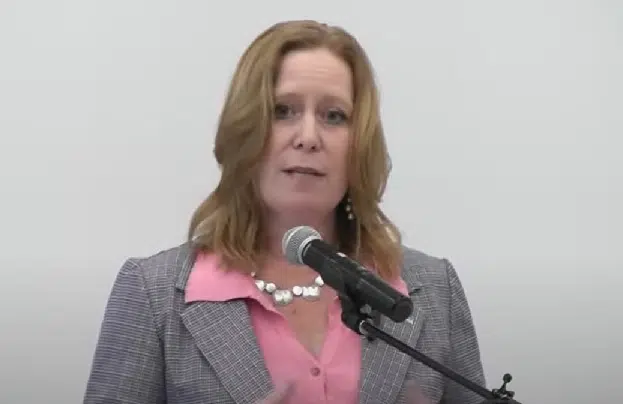The minister responsible for housing in New Brunswick has released a new strategy to address the province’s housing crisis which includes a rent bank and direct financial assistance to tenants.
Social Development Minister Jill Green, who is also responsible for the New Brunswick Housing Corporation, said many great ideas and perspectives came from a wide range of stakeholders involved.
“We heard about the importance of looking at successful initiatives from other provinces like rent banks, increased funding to non-profit organizations and for more accessible housing, collaboration and co-operation among stakeholders, and about other issues that impact housing development such as labour shortages,” said Green.
Based on input from stakeholders, four pillars of the strategy were developed:
- A healthy and competitive housing market
- More affordable homes for low-to-mid-income earners
- A safe home for vulnerable New Brunswickers
- Strong foundation for the province’s housing system
The strategic initiatives are designed to work together to achieve four key housing targets:
- Increase housing starts with a target of 6,000 per year.
- Have no more than 15 per cent of New Brunswick households spend more than 30 per cent of income on shelter costs.
- Create conditions to hold annual rent increases at an average of 2.5 percent and the percentage change in average home prices to 4.8 per cent.
- Decrease the number of households in need of subsidized housing to 7,500 by 2026 from the current waiting list of more than 11,000.
The new Rent Bank, a program that has proven successful in other provinces, will receive $3 million over the next two years from the government to support up to 750 renter households annually to avoid eviction or obtain new rental accommodations.
The rent bank will provide small, short-term loans to low-to-mid-income renter households to help reduce the risk of eviction due to arrears or overdue utilities.
These loans can also help those in need of a first months’ rent or a security deposit to secure a unit.
In addition, a new direct to tenant rental benefit will be created with an annual investment of $22 million.
This new benefit will provide rental assistance to families and seniors and will help to decrease the subsidized housing waitlist.
The benefit will also allow persons with disabilities to sustain and access safe housing options that best meet their needs.
Liberals, Greens respond to housing strategy
The Liberal housing critic says the new housing strategy is not a bad plan overall, but Benoît Bourque said he is disappointed there was no mention of a rent cap.
Bourque said New Brunswickers are not properly protected from steep rent increases.
“You have a lot of New Brunswickers on fixed incomes and pensions, which are not seeing increases or very little, and all of a sudden they’re getting huge rent increases. It really affects their quality of life,” said Bourque.
“In these current conditions where you have this spike of rent increases, I really feel that a rent cap is very efficient.”
One of the strategy’s targets is to create conditions to hold annual rent increases at an average of 2.5 per cent.
Bourque said this is a “very reasonable and appropriate” number in theory, but the question remains whether it can happen.
“We’re certainly not doing it now, we haven’t been doing it for the last couple of years, and in the meantime, New Brunswickers are suffering from these very high rent increases,” he said.
“I feel that this government is not giving themselves enough teeth, in terms of money especially, to achieve those goals.”

Benoît Bourque is the housing critic for the opposition Liberals. Image: Zoom video capture
The plan identifies $500 million in new and previously committed funding by the province and other partners, including Habitat for Humanity and Ability New Brunswick.
Bourque said while this is a “sizeable” amount of money, we need at least $2 billion just to fix the current crisis.
“It is a tall order for a government to provide all of the money, but I think that the government needs to be a strong partner,” said Bourque.
“I think this government is a little bit too shy. I think we need more investment from the government. along with the private sector, the federal government, municipal partners, and not-for-profit.”
The Green Party’s housing critic said there were a number of positives contained in the housing strategy.
Megan Mitton said one thing she has been pushing for is more support for non-profits and cooperatives.
Mitton said she was also happy the government included a rent bank, which she had also been calling for.
“That is a great preventative measure to support people to prevent them from becoming unhoused and losing their housing,” Mitton told reporters.
“So many people are just one paycheque away from not being able to pay their bills. They just need that support to get through that month and get back on track so that they don’t become unhoused if something comes up.”

Megan Mitton is the housing critic for the Green Party. Image: Zoom video capture
But Mitton said she was disappointed the government decided not to include a rent cap as part of the strategy.
In particular, she was hoping to see a rent cap tied to individual apartments rather than the existing tenant.
“Having it tied to the apartment can mean that when the apartment changes from one tenant to another that the rent doesn’t spike,” said Mitton.
In addition, the MLA said she wanted to see a clear pathway to protect the province’s affordable housing stock.
With files from Brad Perry




